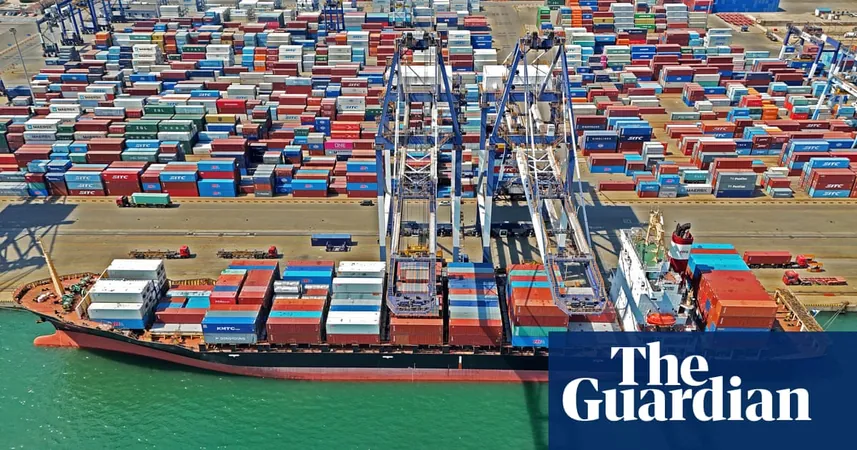
US Slaps New Port Fees on Chinese Ships: A Bold Move to Undercut China's Maritime Dominance
2025-04-18
Author: Jacques
A Game Changer for the U.S. Shipbuilding Industry
In a significant escalation in the ongoing trade spat with China, the United States has announced new port fees specifically targeting Chinese-built and operated vessels. This strategic move aims not only to bolster the struggling American shipbuilding sector but also to challenge China's stronghold in global shipping.
Fueling Tensions Amidst Trade Wars
This decision stems from an investigation launched during the previous presidential administration and comes at a time when trade relations between the U.S. and China are fraught with tension over tariffs imposed by former President Donald Trump. U.S. Trade Representative Jamieson Greer emphasized the importance of shipping for American economic security, stating, "Ships and shipping are vital to the free flow of commerce."
Understanding the New Fees
Beginning in mid-October, the U.S. will implement fees based on the tonnage or number of containers each Chinese-linked ship carries during its voyages to America. This fee structure alleviates concerns within the industry, as these charges will not apply at every port.
Impacts and Future Projections
The fees can be imposed up to five times a year but can be waived if the vessel's owner opts to order a ship built in the U.S. The U.S. shipbuilding industry, which once reigned supreme post-World War II, now finds itself accounting for a mere 0.1% of global output, overshadowed by Asian giants like China, South Korea, and Japan.
Picking Up the Cost of Dominance
The fees range from $18 per net ton or $120 per container for Chinese-built ships, with a cost of up to $1.8 million for a vessel transporting 15,000 containers. Industry groups have expressed concerns that these new fees, combined with existing tariffs, could significantly inflate prices for American consumers.
Broader Implications for Global Trade
To further complicate matters, fees will also be levied on all non-U.S.-built car carrier vessels within 180 days and new charges for liquefied natural gas (LNG) carriers will come into play in three years. A fact sheet released with the announcement clarified that shipping routes on the Great Lakes, Caribbean, and US territories, as well as bulk exports on ships arriving empty, will not be subjected to these fees.
Ramps Up Uncertainty for Retailers
As these new policies unfold, U.S. retailers are bracing for a cascade of challenges that could derive from not only these fees but also ongoing tariffs on various imports, including crucial materials like steel and aluminum.
A New Era in Maritime Relations?
Greer has hinted that these measures are just the beginning, as the U.S. seeks to reclaim its position in a market long dominated by Chinese and other Asian players. The implications of this move could reverberate through global trade for years to come.









 Brasil (PT)
Brasil (PT)
 Canada (EN)
Canada (EN)
 Chile (ES)
Chile (ES)
 Česko (CS)
Česko (CS)
 대한민국 (KO)
대한민국 (KO)
 España (ES)
España (ES)
 France (FR)
France (FR)
 Hong Kong (EN)
Hong Kong (EN)
 Italia (IT)
Italia (IT)
 日本 (JA)
日本 (JA)
 Magyarország (HU)
Magyarország (HU)
 Norge (NO)
Norge (NO)
 Polska (PL)
Polska (PL)
 Schweiz (DE)
Schweiz (DE)
 Singapore (EN)
Singapore (EN)
 Sverige (SV)
Sverige (SV)
 Suomi (FI)
Suomi (FI)
 Türkiye (TR)
Türkiye (TR)
 الإمارات العربية المتحدة (AR)
الإمارات العربية المتحدة (AR)